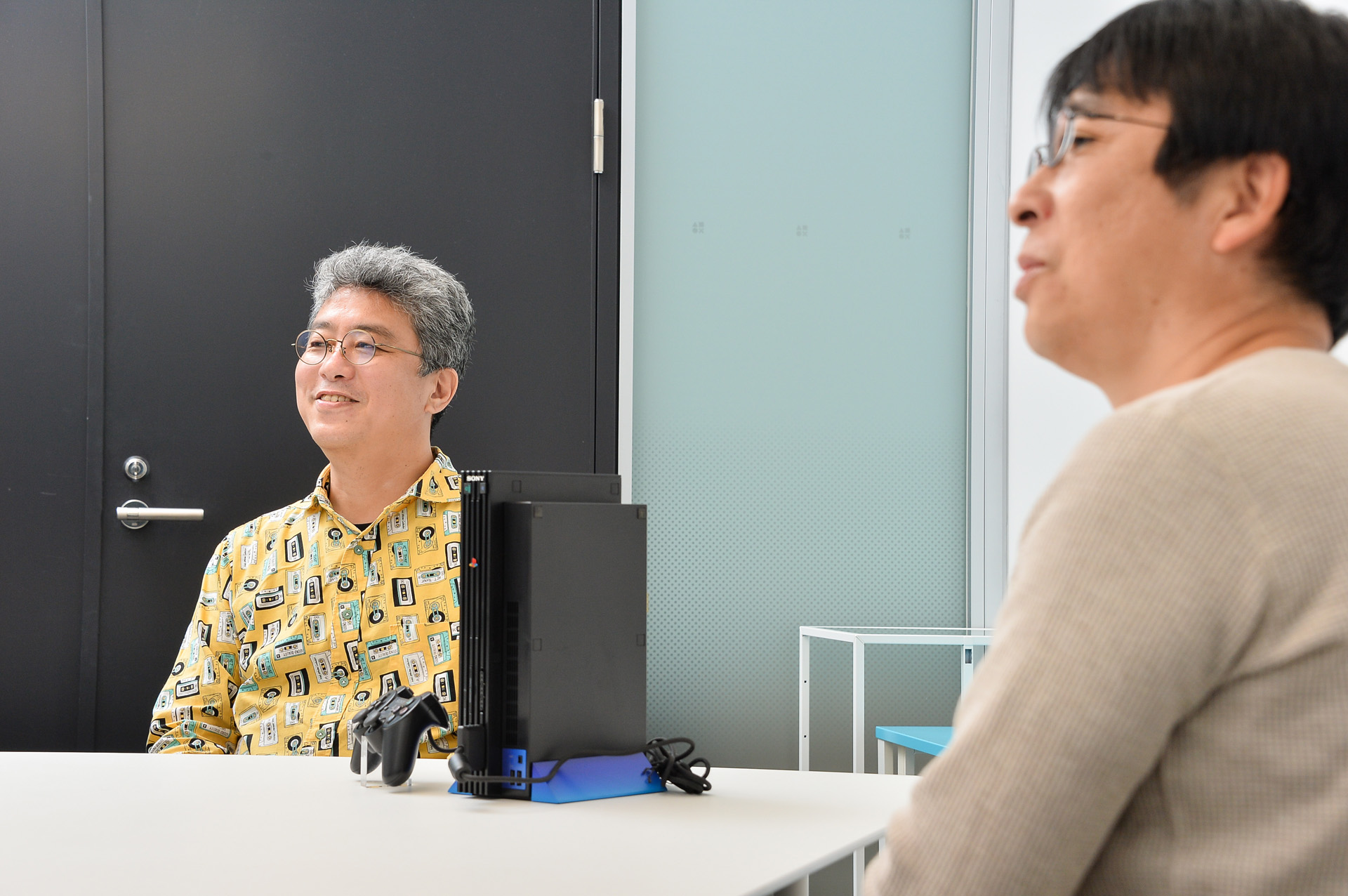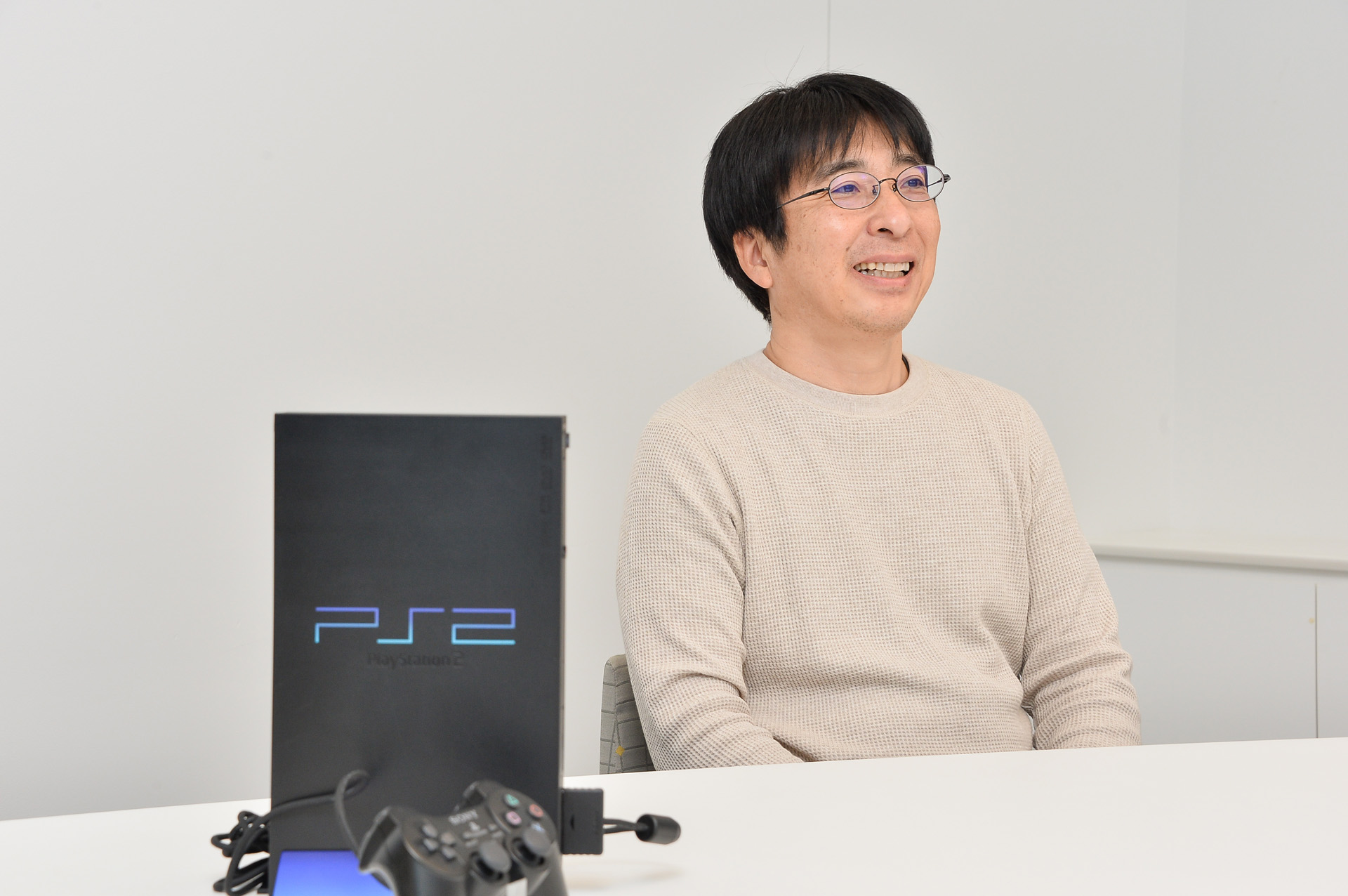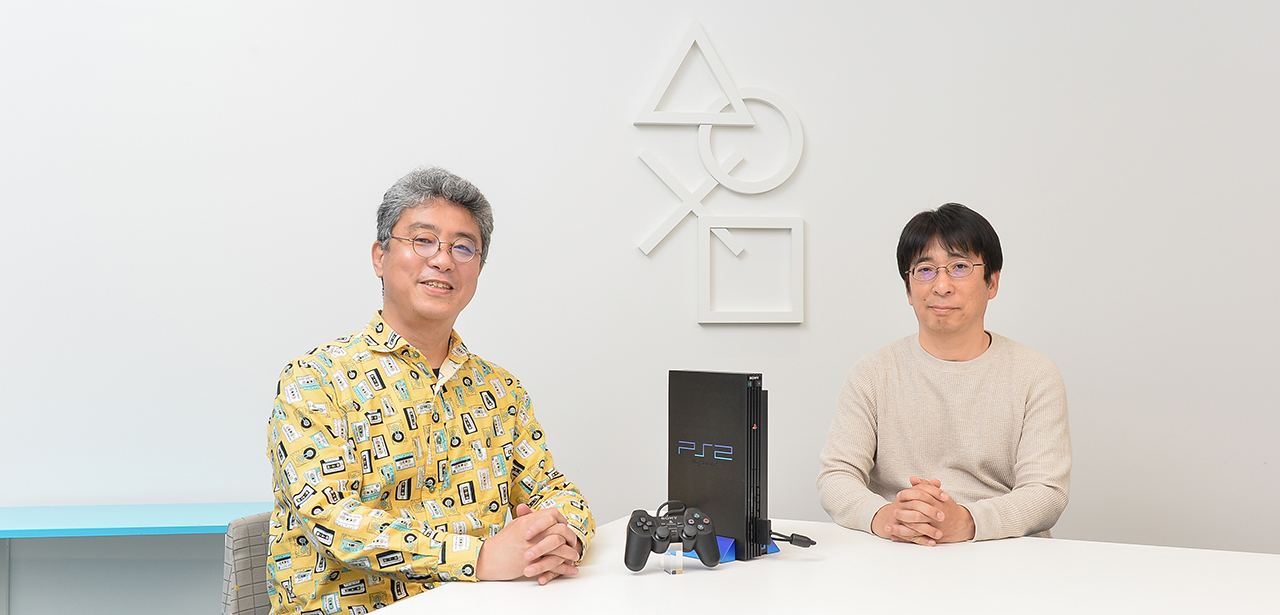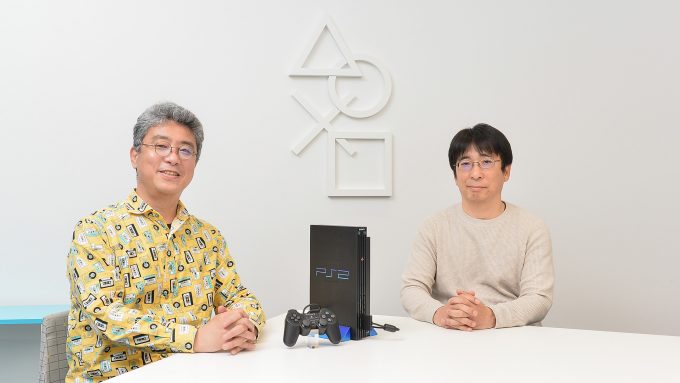“WE DISCUSS VANA’DIEL” is a series of conversations between Producer Matsui and special guests who are familiar with FINAL FANTASY XI (FFXI). This installment focuses on the PlayStation 2 (PS2), the platform which supported FFXI since its launch in 2002 until 2016. Our twelfth guest is Muneki Shimada of Sony Interactive Entertainment (SIE), who was involved in developing the online aspects of the PS2 since the early stages of the FFXI project. How did he perceive the first full-fledged MMORPG for consoles? In this fourth and final part of the conversation, Mr. Shimada expressed his thoughts on the importance of accumulating technology experience, and also reflected on FFXI’s 14 years of service with the PS2 version.

Vice President of Sony Interactive Entertainment, who currently resides in the United States. After joining Sony Computer Entertainment (SCE; now Sony Interactive Entertainment) in 1998, he helped develop the PlayStation 2 and the PlayStation BB Unit. He has since been involved in a wide range of development projects, including those for the PlayStation Portable (PSP) and PlayStation Network (PSN), as well as providing technical support for game developers around the globe.
The marvel of FFXI’s 14 years on the PS2
Mr. Shimada, in your opinion, what made FFXI stand out from previous MMORPGs and console games other than the fact that it was released for the PS2?
- Shimada
Prior to FFXI, PC-based MMORPGs such as EverQuest* were played using a mouse and keyboard. But with FFXI, you could hook up the console to a TV and play with a controller, which was simply revolutionary. Another thing that impressed me was how version updates were already planned months in advance from the very beginning of the service. In the console game industry, games were considered complete once they were sold. Continuously releasing content over an extended period was something we’d never seen before.
* EverQuest is an MMORPG released in North America in 1999. - Matsui
I believe the number of online-compatible titles using BB Units and network adapters went up after FFXI, but was that within expectations for SCE?
- Shimada
We didn't really have a specific number of titles in mind, but we were granted many opportunities to discuss network compatibility with software developers in the latter half of the PS2 era. That momentum carried over to the PSP and allowed us to release a large number of network-compatible titles right from the start. Network technology, platform functions, and publishers’ game planning strategies for PSP were all made possible by our accumulated experience on the PS2. This was back when Wi-Fi routers and broadband connections were just starting to become mainstream, so our knowledge of network compatibility, such as what was feasible or workarounds, were mostly based on our experiences with the PS2. A specific example is the way many titles adopted a client-driven method for matchmaking instead of systems revolving around massive clusters of servers. Then with the advent of server-side “Tech Giants”* such as Google and Amazon, we entered an era where even our company began making serious server investments for the PlayStation 3 (PS3) and other platforms.
* Tech Giants (also known as “Big Tech”) is a name collectively referring to a group of companies which dominate the information technology industry on a global scale. - Matsui
Speaking of the PSP, the Monster Hunter Portable* series was extremely popular, wasn’t it? I often saw junior high and high school students playing together at railway platforms while waiting for the train.
* Monster Hunter Portable is a game for the PSP released by Capcom in 2005, followed by subsequent titles. Games in the series featured multiplayer using the PSP’s Ad Hoc Mode. Monster Hunter also traces its origins back to the PS2.
- Shimada
That’s true. Each title varies in terms of its core technology and how it’s used, but the teams in charge of them were likely made up of the same members, even when transitioning from the PS2 to PSP and I imagine they built up a wealth of experience from that.
- Matsui
Accumulating experience and skills is important, isn’t it?
- Shimada
Those kinds of advancements were most apparent in graphics in the ‘90s, but I’d say it shifted to network-related advancements after the turn of the century. That trend continued throughout the PS3 era and seemed to finally come to fruition with the PlayStation 4 (PS4).
In a similar way, FFXI has been built up to its present state over the past 20 years. By the way, did SCE have any forecasts as to how long FFXI would continue their services?
- Shimada
SCE didn’t prepare the actual servers and only provided various code libraries, but we did need to maintain support for the PS2's patching mechanism, since that was managed on our end. That said, as far as I’m aware, we didn’t have an estimate for how long FFXI would continue.
- Matsui
To be honest, SCE obliged our rather selfish requests towards the end of the PS2 version... The BB Unit’s hard disk originally limited how much capacity could be allocated for a single title, but they bent that rule and allowed us to use more when we reached our limit. Nevertheless, we ran out again, but by the end they assured us, “You can use however much you’d like for FFXI.” They also held onto the development tools for us for the longest time, which also meant a lot to us. The PS2 version of FFXI was only able to continue for so long thanks to SCE’s tremendous support.

- Shimada
I’m sure many of our staff members would be pleased to hear that. Many of them love FFXI, and I’m sure they handled the situation knowing they were contributing to prolonging FFXI’s services.
- Matsui
Looking back, I think the last packaged title on the PS2 was Seekers of Adoulin (released March 27, 2013).
- Shimada
It’s truly amazing to think that a single game has lasted for 20 years. An accomplishment like that was only possible thanks to the development team and the players coming together as a single community.
- Matsui
As someone who was involved in the production of the game, the fact that an MMORPG could run on the PS2 was one I sort of took for granted at the time, but looking at it objectively many years later, the fact that FFXI ran on the PS2 in itself is a miracle. The PS2 hardware really helped us a lot, considering how it kept going for 14 years in our 20-year history. If the hardware limitations had been reached earlier, FFXI would have been developed differently from what it is now. In that sense, the PS2 hardware is very dear to me.
- Shimada
The PS2 version ended service in 2016, which was three years after we released the PS4. I was surprised when I looked it up again.
- Matsui
When the announcement was made that hardware repair services for PS2 would be ending, some FFXI players were saying, “We have to find somewhere that has them in stock and purchase backups!” (laughs)
- Shimada
The PS2 came with an Expansion Bay, which I think contributed to why the console was in operation for so long.
- Matsui
The decision for an MMORPG entry in the FF series on the PS2 was made fairly early on, but perhaps the PS2’s scalability was something they also took into consideration from the very beginning.
The PS2 is an amazing piece of hardware even looking back now, considering how Dynamis could host up to 64 players* or how Besieged allowed up to 700 participants.
* The original implementation of Dynamis allowed areas to be reserved by groups of up to 64 players. It was later changed to its current non-reservation specifications in 2011.- Matsui
Dynamis and Besieged were designed with the acceptance that even if we couldn’t display all the characters, it was enough if the essentials are displayed for the players. That said, there were some issues where enemies, the important part, weren't being displayed... Taking that into consideration, FFXI was always pushing the PS2 to its limits.
Last but not least, Mr. Shimada, do you have any words for FFXI and its players as they celebrate the 20th anniversary?
- Shimada
Congratulations again on the 20th anniversary. I’d like to reemphasize that 20 years of service is a tremendous achievement in itself and I hope the game will remain in service as long as possible and continue to keep the world of Vana’diel alive for its players. Although it was only in the early days of the PS2 era, it was truly an honor to be involved with FFXI.





